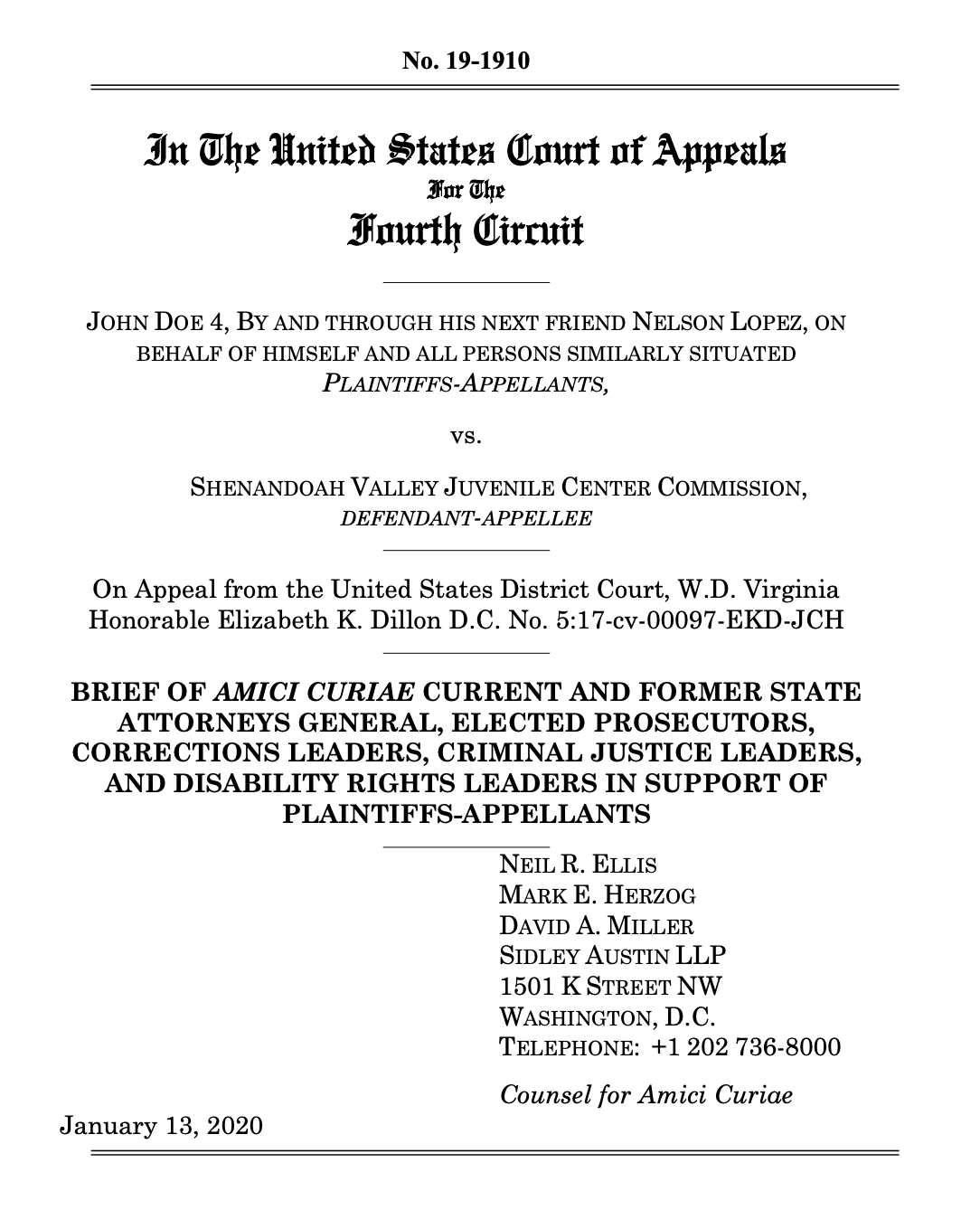
Summary of Argument
The district court erred in concluding that a trauma-informed approach to mental health care for detained children is merely aspirational, rather than reflecting the constitutionally required standard of professional care. In fact, a trauma-informed approach has been widely accepted and adopted as the standard of care in this setting. A trauma-informed approach is critical for child detainees, and failing to implement such an approach can both permanently injure the children who are in the states’ care and erode the public’s trust in the legitimacy and integrity of the legal system, thereby harming public safety.
Plaintiffs in this case have been harmed in numerous ways because Shenandoah Valley Juvenile Center (“SVJC”) has egregiously and repeatedly departed from accepted professional norms—including failing to provide adequate mental health treatment to children in its care with known mental health issues and using punitive measures including lengthy solitary confinement. Yet the district court erroneously rejected Plaintiffs’ claim that they failed to receive adequate mental health care by applying the wrong constitutional standard. Rather than using the “deliberate indifference” standard, the court should have applied the professional judgment standard set forth in Youngberg v. Romeo, 457 U.S. 307 (1982). A trauma-informed approach represents the accepted standard of professional judgment under Youngberg, and the SVJC violated Plaintiffs’ rights by failing to adopt it. Under the correct constitutional standard, there are clearly genuine issues of material fact, and this Court should remand the case to the district court.